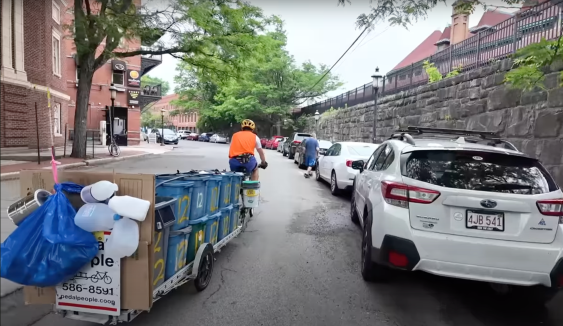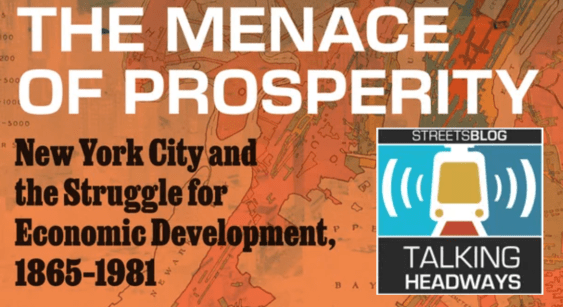Here’s what’s grabbing our attention around the Streetsblog Network today:
The Case for Subjectivity in Planning: Professional standards dictate that planners are supposed to be passionless bureaucrats who can administer city policy while putting their personal feelings aside. That, however, is a recipe for miserable planners and uninspired plans, says the “Subjective Planner” at Network blog Bikeside LA. “I have come to a realization that government planning as a career is intent on destroying whatever heart and utopian ideas you went into it with. The truth is that most planners come out of college with some amazing ideas and crazy good dreams of wonderful communities where you can walk to the market or mom can borrow a cup of sugar from next door. A place where kids still ride their bikes to school…”
Rather than remaining in offices reviewing code, planners should be out in the community, interacting with residents, says the Subjective Planner. “I go into every meeting with one thing on my mind, ‘If they know what I know and they care like I care, then we are probably going to find a lot of common ground.’ Ultimately I am there to sell a community good planning concepts and practices because most fear of change comes from not knowing or understanding the concepts that the change is based on.”
Will Portland Stay Committed to Its Green Transportation Priorities? If there’s one city in the country that has its priorities straight when it comes to transportation, it’s Portland. Of course, political pressures sometimes get in the way of even the best laid plans. According to Portland’s 2030 Bike Plan, pedestrians and cyclists are to be given top priority in local transportation decisions. At the other end of the spectrum, single-occupancy vehicles are supposed to receive the lowest billing. Except, often times it seems the city’s priorities run in exactly the opposite direction, says Jonathan Maus at Bike Portland.
Maus reports that a series of bike projects in the city’s 2030 Bike Plan are at risk of being eliminated. Portland bike advocates need to continue to pressure public officials to remain faithful to the highly-touted plan, lest they see the hierarchy reversed. “This is Portland. If it can’t happen here, the transportation future of our entire country looks very dim,” says Maus.






